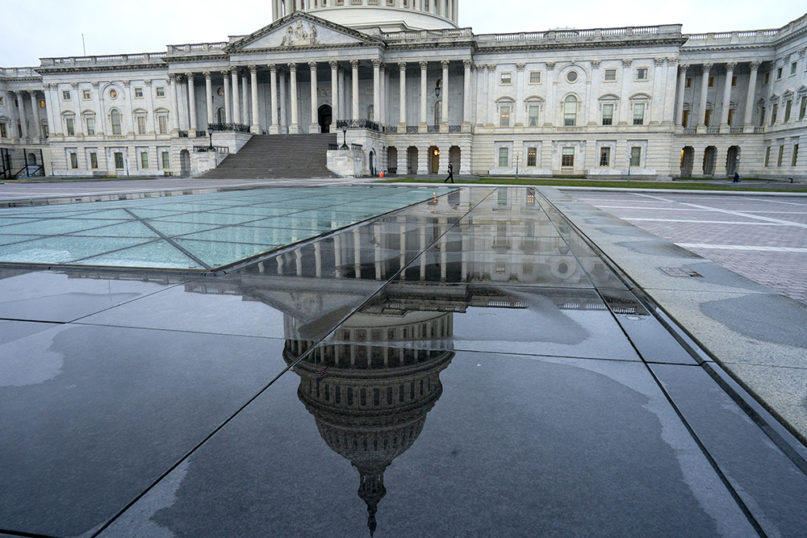(RNS) — Muslim federal employees who say they felt discriminated against under President Trump are advocating for new federal policies to prevent workplace bias, with many backing a new initiative from Muslim Americans in Public Service aimed at getting the Biden administration to adopt measures that reflect the needs of Muslim Americans who work for government agencies.
Earlier this year, President Biden signed Executive Order 14035, launching a “government-wide initiative to advance diversity, equity, inclusion, and accessibility in all parts of the Federal workforce,” according to a White House statement. The Biden administration has also announced policies to root out far-right extremists in the military, the Department of Homeland Security, and other agencies.
While Trump’s executive order preventing citizens of certain Muslim-majority countries from entering the United States attracted media attention, Muslim federal employees faced various forms of discrimination, harassment and unwarranted investigation from the Trump administration.
“You had people at USAID who publicly hated Muslims. Can you imagine this being tolerated if this was a member of a different minority group?” asked Ahmad Maaty, an economist for the Department of Transportation and chair of Muslim Americans in Public Service, which was founded in response to their treatment.
An internal State Department report released in 2019 found that the Trump administration had discriminated against a diplomat of Iranian heritage.
RELATED: As US refocuses anti-extremism programs on far right, many Muslims still oppose them
The problem precedes the Trump administration, according to Maaty. In the Obama administration, he said, Muslim State Department staffers were dissuaded from establishing a formal schedule for Friday community prayer, though a meditation space was made available. And while then-Secretary of State John Kerry and other state officials made much of an annual iftar dinner during Ramadan, none of the department’s Muslim employees were invited.
Similarly, he points out, an organization for Muslim congressional staffers formed after the turn of the millennium faced harassment and was eventually disbanded. A similar organization for Jewish congressional staffers still exists.
Earlier this year, the Biden administration re-established the Muslim-American Liaison in the White House Office of Public Engagement, which MAPS members feel could do more to reach out and engage with faith-based initiatives, including those involving Muslims.
MAPS has published a set of 12 recommendations to improve working conditions for Muslims in public service. The document also calls attention to scrutiny that some Muslim civil society organizations have faced over the past two decades from law enforcement, particularly the FBI. “Some Muslim organizations are placed in a ‘pending phase’ for years (by the agency) with no clear evidence against them or recourse,” the report says.
Many of the guidelines, however, focus on human resource issues to clarify procedures and allow Muslim employees an opportunity to express grievances, for example, through the U.S. Equal Employment Opportunity Commission. Engaging with the EEOC can be a daunting process for any minority federal employee. One study of data collected between 2012 to 2016 found that 63% of federal employees who brought a complaint to the EEOC eventually lost their jobs.
RELATED: Zahid Quraishi confirmed as first Muslim federal judge
“Many Muslim families want their children to be doctors, lawyers or engineers, but I think one of the goals of our organization is to suggest that a career in public service can be fulfilling and a career they can pursue without any prejudice caused by their faith. We want to encourage more Americans — all faiths — to consider public service.”
Maaty does believe Muslim-Americans have made important strides in recent years and applauds President Biden’s appointment of Zahid Quraishi as a federal judge.
He also points out that Muslims have served in the federal government since the 19th century, and, if military service is included, since the War of Independence. “All we want out of this initiative is to see Muslims welcome across the federal government and able to serve as any other individual.”





